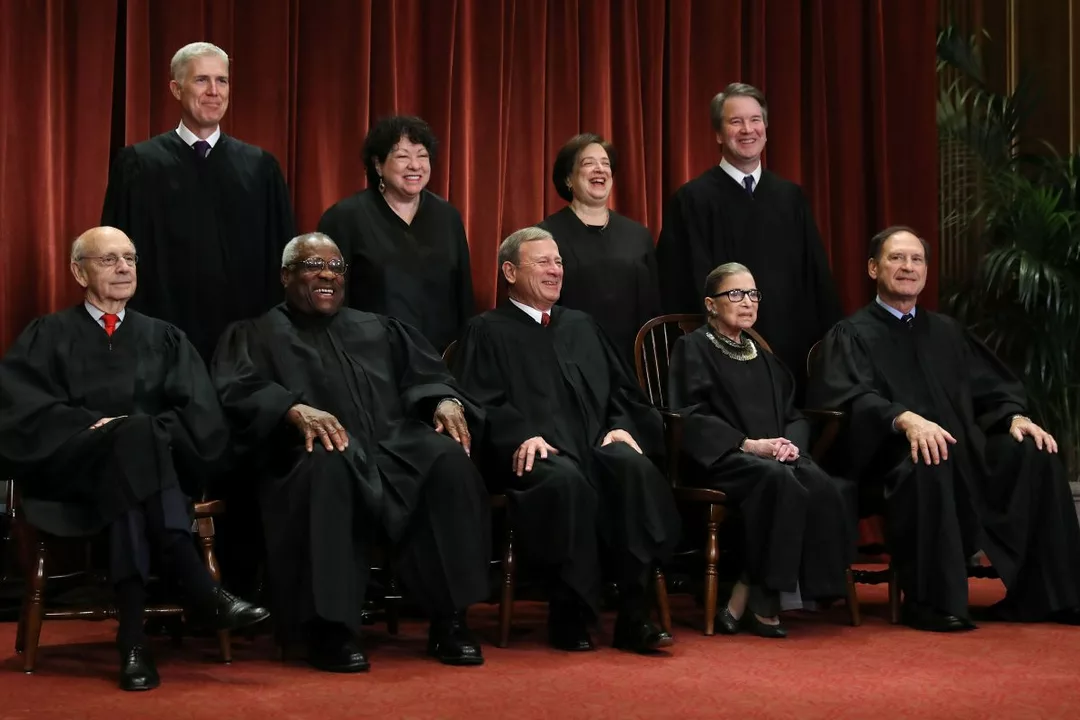
Understanding the Supreme Court's Power
When we talk about the Supreme Court, we often immediately think of its position as the highest court within a country's judiciary system. The Supreme Court's role is to interpret the constitution and ensure that laws are applied fairly and consistently across the nation. In this section, we will delve into the power that the Supreme Court holds and how it compares to other judicial bodies around the world.
The Supreme Court's power mainly stems from its ability to make rulings that can have a significant and lasting impact on the legal landscape. Its decisions set precedents that lower courts must follow, which means that the Supreme Court can effectively determine the direction of the law within a country. Additionally, the Supreme Court has the authority to strike down laws that it deems unconstitutional, which further solidifies its power and influence over the legal system.
Comparing the Supreme Court to Other Judicial Bodies
Many countries have their own version of a supreme court, but not all are created equal. In some nations, the highest court may have limited jurisdiction or only hear specific types of cases. In others, the court's power may be more symbolic than practical, with little impact on the day-to-day lives of citizens.
However, there are a few judicial bodies that can be considered as powerful as, or even more powerful than, the Supreme Court. For instance, the European Court of Justice (ECJ) is the highest court in the European Union and has the authority to make decisions that impact all member states. Similarly, the International Court of Justice (ICJ) is the principal judicial organ of the United Nations and has the power to resolve disputes between countries.
The Role of Judicial Review
Judicial review is a critical aspect of the Supreme Court's power, as it enables the court to examine legislation and determine whether it is in line with the country's constitution. This authority allows the Supreme Court to maintain the balance of power between the different branches of government and protect the rights of citizens.
While judicial review is a common feature among supreme courts worldwide, the extent to which it is utilized can vary. Some courts may only exercise judicial review in specific circumstances, while others may have broader authority to review any law or government action that is deemed unconstitutional.
Impact of Supreme Court Decisions
The Supreme Court's decisions can have a profound and lasting impact on society, as they often address contentious issues and set important legal precedents. These decisions can shape the way laws are interpreted and enforced, which can ultimately affect the rights and freedoms of citizens.
For example, the United States Supreme Court's decision in Brown v. Board of Education effectively ended racial segregation in public schools, while the ruling in Roe v. Wade established a woman's right to access safe and legal abortion. These landmark decisions are just a few examples of how the Supreme Court can wield its power to bring about significant social change.
Checks and Balances on Supreme Court Power
While the Supreme Court is undoubtedly a powerful institution, it is important to recognize that its power is not absolute. The principle of checks and balances ensures that no single branch of government becomes too powerful, and this applies to the Supreme Court as well.
For instance, Supreme Court justices are nominated by the executive branch and must be confirmed by the legislative branch. This process helps to ensure that the court remains independent and free from political influence. Additionally, the court's decisions can be overridden through constitutional amendments, although this process is often complex and time-consuming.
Conclusion: Is the Supreme Court the Most Powerful Judicial Body on Earth?
While the Supreme Court is undoubtedly a powerful and influential institution, it is difficult to definitively state that it is the most powerful judicial body on Earth. Its power is certainly significant, particularly when it comes to interpreting and shaping the law within a nation. However, other judicial bodies, such as the European Court of Justice and the International Court of Justice, also wield considerable power and influence on a global scale.
Ultimately, the power of the Supreme Court is balanced by the principles of checks and balances and the existence of other influential judicial bodies. This balance helps to ensure that the rule of law is maintained and that the rights and freedoms of citizens are protected across the globe.
More Articles

IMD Warns of Heavy Rainfall and Storms Across North India Until Oct 7
The IMD warns of extreme rainfall, thunderstorms and gusty winds across north India until Oct 7, with Delhi under a yellow alert and temperatures set to drop later this week.

Is living in the USA worth leaving India?
The article discusses the advantages and disadvantages of leaving India to live in the United States. On the one hand, it talks about the higher standard of living in the US, and the potential to have access to better education and job opportunities. On the other hand, it points out that the cost of living in the US is much higher than in India, and that the cultural and social differences can be difficult to adjust to. In conclusion, the article suggests that whether or not living in the US is worth it depends on the individual's personal needs and priorities.

Which are the most unnreliable and worst newspapers in India?
Determining the most unreliable newspapers in India can be subjective, but some publications often come under scrutiny for their lack of objectivity and sensationalized news. Critics argue that newspapers like Zee News, Aaj Tak, and India TV have a tendency to prioritize sensationalism over factual reporting. Their credibility has periodically been questioned due to instances of misreporting and promoting biased views. However, it's crucial to remember that not every piece they publish is unreliable, and readers should always cross-verify information from multiple sources. Always strive to consume news from a range of outlets to ensure a balanced perspective.
